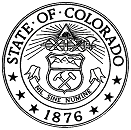![]() The information on this page is archived and provided for reference purposes only. It may be outdated or no longer maintained.
The information on this page is archived and provided for reference purposes only. It may be outdated or no longer maintained.
State of Colorado asks U. S. Supreme Court to review "faithless electors" case
Denver, October 16, 2019 – Colorado Secretary of State Jena Griswold and Attorney General Phil Weiser today petitioned the U.S. Supreme Court to review a federal appeals court decision that prevents Colorado from ensuring that presidential electors follow state law by casting their ballot for the candidate who wins the most votes in the state's presidential election.
Like most states, Colorado law requires its presidential electors to follow the will of its voters when casting their Electoral College ballots for President. But in an unprecedented decision issued in August, the U.S. Court of Appeals for the 10th Circuit ruled in Baca v. Colorado Department of State that Colorado cannot remove presidential electors if they fail to cast their ballots in accordance with state law. Griswold and Weiser said the decision, if upheld, threatens the stability of our nation by allowing presidential electors to disregard state law and the votes of the people by choosing for whomever they want for President and Vice President.
"The 10th Circuit's decision undermines voters and sets a dangerous precedent for our nation. Unelected and unaccountable presidential electors should not be allowed to decide the presidential election without regard to voters' choices and state law," said Secretary Griswold. "When Americans vote in the Presidential election, we are exercising our most fundamental right – the right to self-governance and self-determination. The foundation of our democracy is at risk, and we will vigorously appeal this decision to the U.S. Supreme Court."
"The U.S. Constitution gives state legislatures the power to appoint electors, which includes the power to remove them for refusing to vote in the manner required by state law. This ruling threatens to take the solemn duty of electing the President and Vice President away from the people of Colorado and put it in the hands of a few unaccountable presidential electors," said Attorney General Weiser. "Our nation needs the U.S. Supreme Court to resolve this critical question about the foundation of our constitutional democracy before the 2020 election to avoid confusion."
This case started in December 2016 after Hillary Clinton won the most votes in Colorado. Two of Colorado's electors, Polly Baca and Robert Nemanich, expressed their intent to cast their electoral ballots for someone other than Clinton. Prior to the Electoral College vote, they filed suit in U.S. District Court claiming that the state lacked authority under the U.S. Constitution to bind the votes of electors. The federal district court denied the electors' request and characterized it as a "political stunt." The electors then sought an emergency injunction from the 10th Circuit, which also denied their request. The two electors did not appeal further.
At that time, former Colorado Secretary of State Wayne Williams sought guidance from a state district court regarding the procedure for binding electors who refuse to follow state law and honor the will of Colorado voters. The state district court held an elector who violates state law by casting their electoral ballot for someone other than the presidential candidate who won the most votes in Colorado could be replaced with an alternate elector. In response to the ruling, and before the date for electors to cast their ballots, Secretary Williams promulgated emergency rules clarifying that failure to cast their ballot in accordance with Colorado law would create a vacancy in the office of presidential elector.
On the day electors cast their ballots, Polly Baca and Robert Nemanich cast their ballots for Clinton, in accordance with state law. Micheal Baca, however, attempted to cast his ballot for John Kasich. Because that act violated state law, Williams removed Mr. Baca as an elector.
After the electors cast their ballots, Mr. Nemanich, Ms. Baca, and Mr. Baca filed a second suit in federal district court. The court found that the electors could not sue because they are state officials when acting as electors. It also concluded that Colorado may lawfully bind its presidential electors to the winner of the most votes in Colorado. The electors appealed the decision to the 10th Circuit.
The 10th Circuit reversed two prior U.S. District Court decisions holding that electors must follow Colorado's law requiring them to cast their electoral ballots for the presidential candidate who receives the most votes in Colorado's general election. The 10th Circuit also reversed the state court decision that presidential electors are state officials who lack standing to challenge Colorado law.
Because the 10th Circuit's ruling impedes Colorado's ability to enforce state law and has the potential to undermine voters across the nation, Secretary Griswold and Attorney General Weiser are asking the U.S. Supreme Court to review the case and protect Americans' fundamental right to self-determination.




 Menu
Menu  Search
Search 
